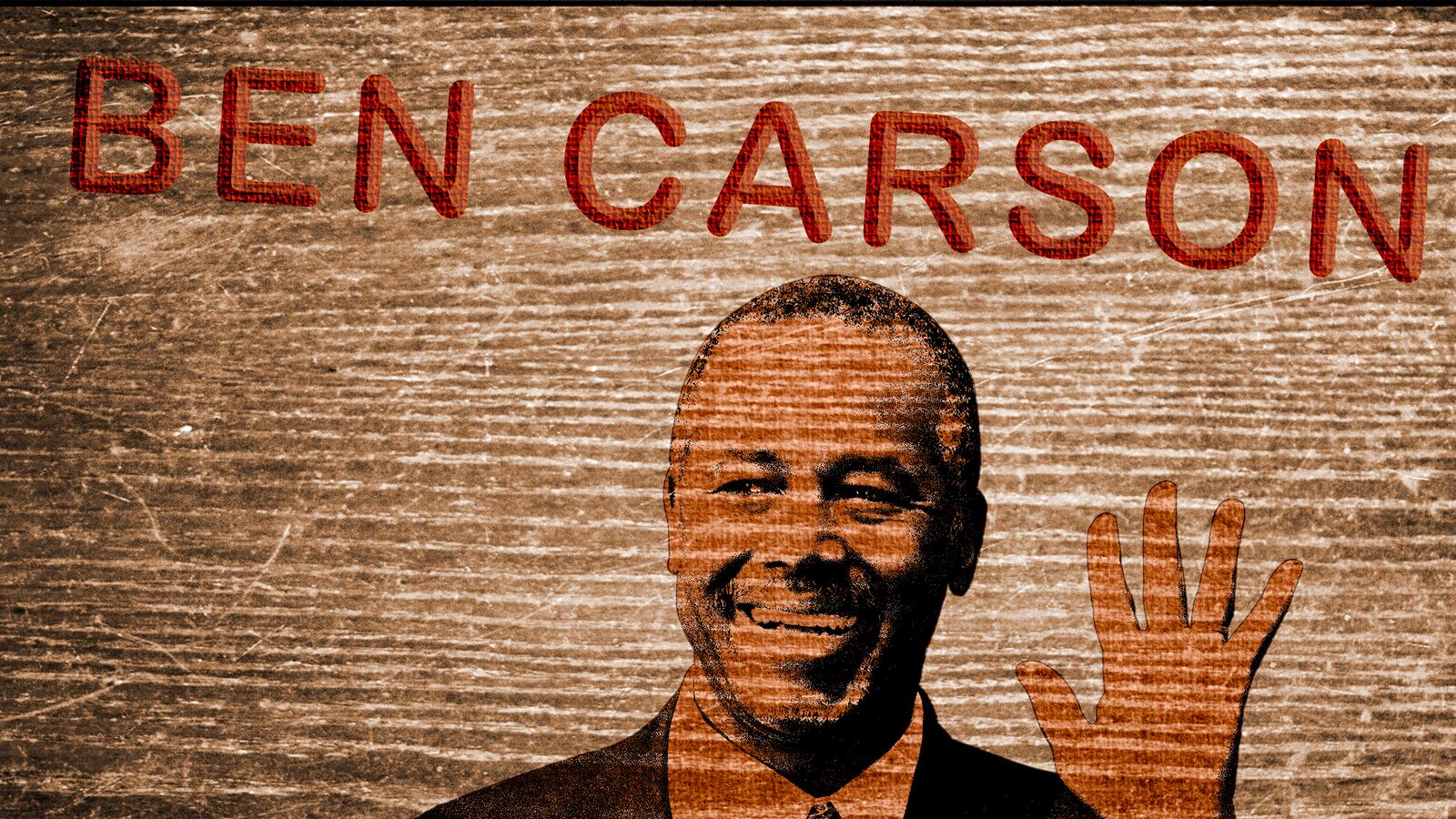Ben Carson might well be the “Rick Ross” of presidential politics.
In no small irony, the retired neurosurgeon—much like the chart-topping rapper— is under fire for allegedly misleading the public about parts of his life story. Ross, also known as “Teflon Da Don,” was never the thugged-out, gun-toting, cocaine-slanging street menace that so often shows up in his lyrics. Instead, he was a college-educated corrections officer before he turned to the music industry to make his millions.
Carson’s exaggerations don’t go that far—his tales are far more pedestrian. But in story after story the iconic physician appears to embellish his life growing up in inner city Detroit. He certainly did not need to spin wild tales about his years as a young, gifted black boy raised by a single mother in urban America. That’s a story millions know and can relate to.
However, in various books, speeches and interviews, Carson appears to want something of a “hood pass”—an acknowledgement of his toughness authenticity—that functions both as insulation from “liberal media attacks” and as political currency among white Republican voters. The lure of a Carson candidacy (as I said in an earlier column) could not be more appealing to the evangelical base, which has been looking for a way to attract more non-white voters. For them, Carson is the perfect ambassador: an American success story who also happens to be black, and the quintessential Horatio Alger from the rough side of the railroad tracks.
For his part, Carson is playing along and seemingly has been for decades. He has leaned on (and sometimes added flourishes to) his backstory in order to expand his public platform. The truth is he has been building a personal narrative—whether true or weaved from whole cloth—about himself from the moment he leapt onto the world stage. He wasn’t just poor, in Carson’s telling, he was hard—the kind of hard that can get an otherwise promising young man into trouble. And while it might be customary in hip-hop, engaging in this kind of self “thugification” is new for politics.
Without a doubt, Carson grew up surrounded by pervasive poverty, and avoiding a myriad of societal maladies in the Motor City was no small feat. For every Ben Carson, there are thousands of black boys who didn’t make it to the sunrise—the ones whose mothers watched tearfully as they left the block cuffed in the back of a squad car or wept over their bodies in a funeral home. Carson more than beat the odds. The bookish kid with thick glasses and a pocket protector earned his way into Yale and went on to become one of the world’s most celebrated surgeons.
Today, based almost solely on that story, Carson is currently leading national polls for the Republican presidential nomination. However, in recent days, key elements—as told by Carson himself— have come under increased scrutiny.
To hear the good doctor tell it, he once tried to stab a “close relative” in a dispute over a radio and at another point he wanted to hit his mother in the head with a brick. He allegedly hurled a rock at a school friend, busting his glasses and leaving him with a bloody nose. If fact, if Carson can be believed, he was so violent that he needed a divine intervention.
It’s a compelling story—one that has sold millions of books, led to a biopic about his life, and earned him countless awards over the years. The problem is almost none of its flourishes ring true and, despite the earnest efforts of reporters, almost none of them can be verified. As it turns out, CNN could find no one—not even the next-door neighbor kids—who could remember a young, hot-tempered Carson, let alone one who tried to murder somebody.
Then there was the time that he was allegedly held at gunpoint in Baltimore while out on a chicken run to a local Popeye’s restaurant near Johns Hopkins Hospital. Carson says he wasn’t afraid. He’d seen enough violence, he said, that he knew the gunman wasn’t there to kill anybody. As tales go, that one smelled like a cooler full of warm catfish.
And of course it doesn’t stop there. In interview after interview, he has waxed poetically about how he overcame extraordinary odds, including personal demons, to achieve his extraordinary success. For many—black and white, alike—Carson was a living, breathing Heathcliff Huxtable.
Carson has staked his credibility on more than just his heroics in the operating room. He regaled us with Ricky Rozay-styled street stories that served to deepen his public policy bona fides and ingratiate him with working and middle class white audiences. But frankly, Carson never needed any proof of his “blackness” and certainly not an ill-advised campaign radio commercial featuring a rap song.
In fact, Carson may be the first presidential candidate in modern history who stands to lose some credibility because he was a goody two-shoes coming up. He is certainly the first frontrunner in my lifetime to admit to attempted murder. I’ve been on this planet nearly 50 years and I cannot recall a serious candidate for office who readily admits—or, for that matter, insists—that he wanted to pummel his own mother in the head with a brick.
Stripped down to its essence, without the auto-tuning and layered tracks, Carson has a powerful story. Unfortunately, it feels like he thinks he has something to prove about who he is and where he came from. Most unfortunately, based on the kinds of stories he has chosen to hype, it appears he has a skewed perspective of what it means to be black.
He should remember that he’s running for president, not selling mix tapes in a barbershop.






